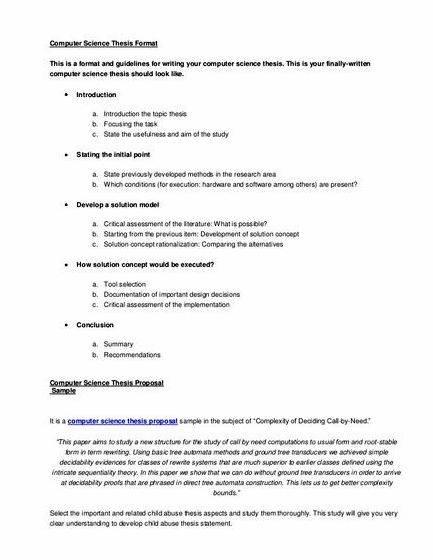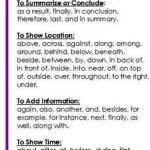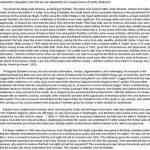A masters thesis. also called a master’s thesis. is an extensive writing project that many master’s degree programs require. The goal of most masters theses is to produce a work that adds a significant thought to or conducts a significant experiment for a given field. It usually takes a student a year to write a master’s thesis.
Because the project lasts so long and delves extensively into its topic, the student should select a topic that is interesting and engaging. The creative student may, upon beginning research, discover that the chosen topic presents such a new idea to the field that no directly relevant research currently exists. In that case, the student must create the research from scratch. He or she should begin research by reading everything available that relates even indirectly to the field of study; for example, if the student is studying a Mesopotamian text upon which no one else has written, he or she may read journal articles and books that deal with other ancient texts from that location, language, or time period. This is called secondary research, and it aids the student in developing a voice of credibility. Secondary research provides an education in the terms, issues, history, and research authorities that belong specifically to that field of study, and the student who becomes conversant in all these areas can begin to write a masters thesis that can sway the opinions of experts in the field.
Then, the student may progress to conducting primary research, which is the act of studying the subject itself and claiming the authority to draw conclusions about it. In a scientific field, this primary research will involve running one’s own experiments, and in a particularly innovative realm may even involve building one’s own equipment upon which to run the experiments.
Students who perform a full range of primary and secondary research and who organize that research in a persuasive, original way will produce masters theses that are strong, competent, and worthwhile.
Related posts:
- Masters Thesis Proposal A masters thesis proposal is a document that a masters candidate submits to his or her major professor for the.
- Masters Thesis Defense The masters thesis defense is the portion of the thesis project in which the student goes before a group of.
- Masters Thesis Format Masters thesis formats vary depending on the fields and departments to which they belong, but students may generally plan on.
- How to Write a Masters Thesis Sometimes students believe that they do not know how to write masters theses, when in reality they know perfectly well.
- Writing a Masters Thesis Writing a masters thesis is a complex task in which one must manage a great deal of research information and.
Aims
It is important to remember that scientific inquiry is motivated by specific questions and that to write clearly you should have your question at the forefront of your mind throughout.
Allow this to guide flow of ideas on the page. Each thought should follow naturally from its precursor as you progress to an understanding of your claim and the evidence which supports it.
Who Are You Writing This Scientific Thesis For?


You cannot write a scientific report without using scientific jargon, and you should assume that your readers know as much about the discipline you are investigating as you do, but may not be as familiar as you are with the ins and outs of your particular method.
A Standard Structure
A scientific report is divided into several sections, each of which has a distinct purpose and its own tone. This forms a framework for your writing, and helps guide the flow of your ideas.
The introduction is your chance to set the particular issue of your report in its broader context. Write a few lines explaining why a particular experiment or investigation is motivated, but do not include details here.
We will investigate the effects of methane on climate change. Millions of tones of methane are released into the atmosphere every day and the potency of the effects methane as a greenhouse gas has recently been a point of some contention in the scientific community.
This will most often take the form of a hypothesis, that is a concise and, most importantly, measureable claim.
E.g. Newton’s First Law
An object at rest remains at rest and an object in motion remains in motion with the same speed and in the same direction unless acted on by a force
Sometimes you will be looking for something more quantitative, for example, in an experiment to determine the speed of light, or the thickness of a human hair.
Bear in mind that repeatability is vital ; another researcher must be able to repeat your experiment, so make sure your work is clearly documented at every stage. Do not include, any actual results, any discussion of your method, any analysis or commentary at this stage. As always when documenting what you have done, writing in the paste tense is appropriate.
Include all data which you which you collect from your procedure. This means if for example you realize that your apparatus has been malfunctioning you do not need to include these results.
Lay it out intuitively and label the tables to aid referencing later.
Your analysis goes here, but you need not include every line of algebra. Your task here is to answer the questions you asked in the introduction.
Remember
- You should consider with every sentence, who you are writing for, and what in particular you are documenting.
- That any question at the start needs an answer by the end,
- And finally, your method must be repeatable, so always clearly detail your work.
RATE THIS RESOURCE:
A masters thesis. also called a master’s thesis. is an extensive writing project that many master’s degree programs require. The goal of most masters theses is to produce a work that adds a significant thought to or conducts a significant experiment for a given field. It usually takes a student a year to write a master’s thesis.
Because the project lasts so long and delves extensively into its topic, the student should select a topic that is interesting and engaging. The creative student may, upon beginning research, discover that the chosen topic presents such a new idea to the field that no directly relevant research currently exists. In that case, the student must create the research from scratch. He or she should begin research by reading everything available that relates even indirectly to the field of study; for example, if the student is studying a Mesopotamian text upon which no one else has written, he or she may read journal articles and books that deal with other ancient texts from that location, language, or time period. This is called secondary research, and it aids the student in developing a voice of credibility. Secondary research provides an education in the terms, issues, history, and research authorities that belong specifically to that field of study, and the student who becomes conversant in all these areas can begin to write a masters thesis that can sway the opinions of experts in the field.
Then, the student may progress to conducting primary research, which is the act of studying the subject itself and claiming the authority to draw conclusions about it. In a scientific field, this primary research will involve running one’s own experiments, and in a particularly innovative realm may even involve building one’s own equipment upon which to run the experiments.
Students who perform a full range of primary and secondary research and who organize that research in a persuasive, original way will produce masters theses that are strong, competent, and worthwhile.
Related posts:
- Masters Thesis Proposal A masters thesis proposal is a document that a masters candidate submits to his or her major professor for the.
- Masters Thesis Defense The masters thesis defense is the portion of the thesis project in which the student goes before a group of.
- Masters Thesis Format Masters thesis formats vary depending on the fields and departments to which they belong, but students may generally plan on.
- How to Write a Masters Thesis Sometimes students believe that they do not know how to write masters theses, when in reality they know perfectly well.
- Writing a Masters Thesis Writing a masters thesis is a complex task in which one must manage a great deal of research information and.




 Neat people vs sloppy people thesis writing
Neat people vs sloppy people thesis writing Thesis writing linking words exercises
Thesis writing linking words exercises The american dream essay thesis writing
The american dream essay thesis writing Ielts writing task 2 ideas of a thesis
Ielts writing task 2 ideas of a thesis Mzumbe university thesis writing guidelines
Mzumbe university thesis writing guidelines






